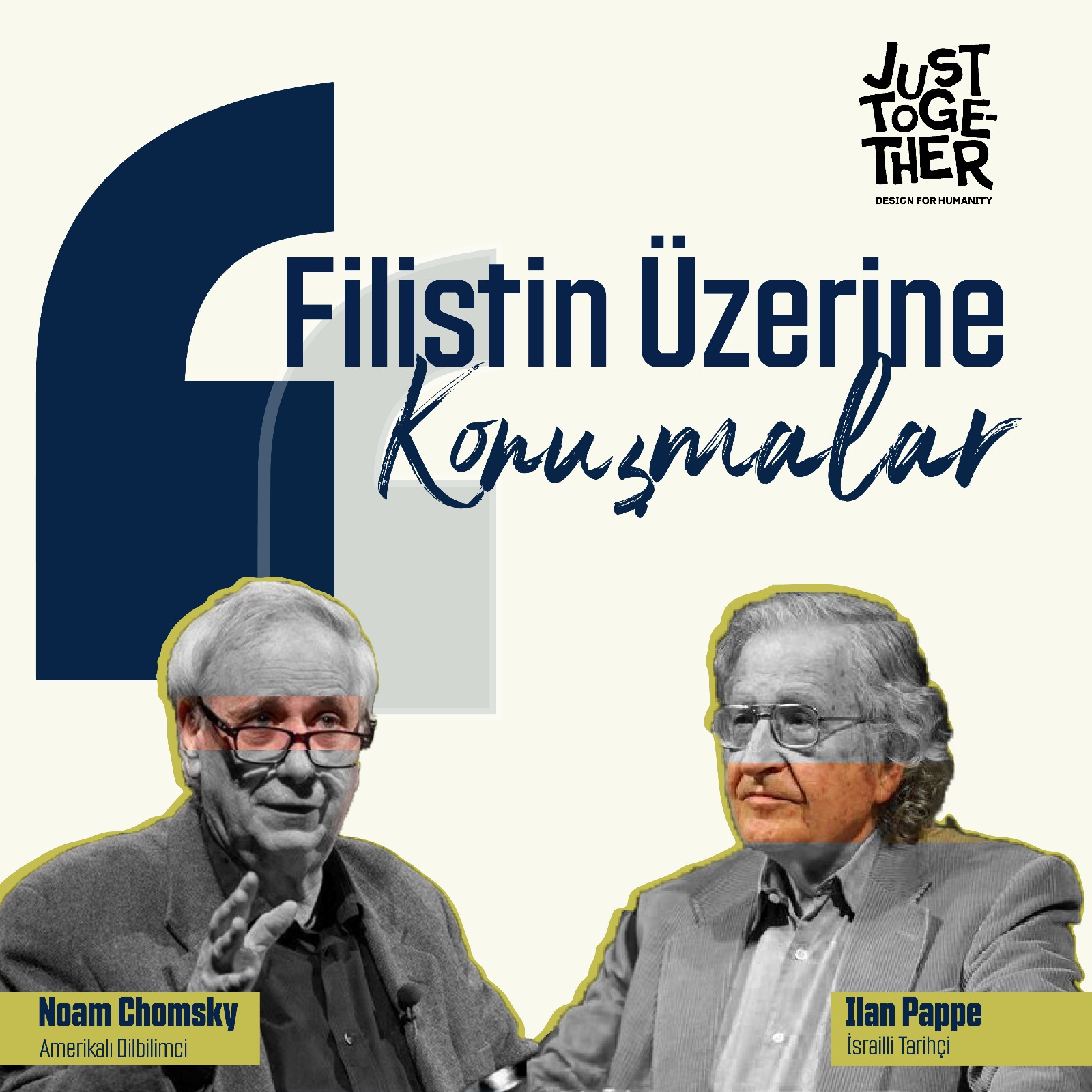2014'te İsrail'in Gazze'ye yaptığı saldırı, binlerce Filistinlinin ölümüne ve İsrail'in yeni toprakları işgaline zemin hazırladı. Filistinlilerle dayanışma içinde olma ihtiyacı hiç bu kadar önemli olmamıştı. Filistin Üzerine Konuşmalar kitabında Ilan Pappé ve Noam Chomsky, Filistinlilerin gelecekteki yolunu ve uluslararası toplumun İsrail’i Filistin halkına yönelik insan hakkı ihlallerini sona erdirmeye nasıl zorlayabileceğini tartışıyor. Siyonist ideolojinin en başından beri işgali kolonizasyon hedefiyle planladığını aktaran kitaptan bir kesiti istifadenize sunuyoruz.
“Siyonizmin bir kolonizasyon” olarak açıklanması denkleminin kritik önem taşımasının nedeni bunun sadece İsrail içinde ve Batı Şeria’daki Yahudileştirme politikalarını en iyi biçimde ortaya koyması değildir. İsrail’in politikaları erken Siyonistlerin projelerini algılama yolları ve ondan söz etme biçimleriyle de uyum içindedir.
İbranice le-hitnahel ya da le-hityasvut fiilleri ve yine İbranice hitancalut ve hitanyasvut isimleri Siyonist hareket tarafından 1882 yılından beri kullanılmıştır. Daha sonra da İsrail devleti, Filistin toprağının devralınmasını bunlarla ifade etmiştir. Bu sözcüklerin tam karşılığı sıralı olarak “yerleşmek”, “kolonize olmak”, “yerleşim" ve “kolonizasyon”dur.
Erken siyonistler bu terimleri gururla kullandılar çünkü kolonyalizm o zamanlar toplum tarafından çok olumlu karşılanan bir durumdu (bu durum Birinci Dünya Savaşı'nın sonuna kadar aynen devam etmiştir). Kolonyalizm getirileri İkinci Dünya Savaşı'ndan sonra değişince ve “kolonyalizm” aklıma olumsuz Avrupa politika ve uygulamalarını getirmeye başlayınca Siyonist hareket ve sonra da İsrail devleti İbranice terminolojiyi kolonyalist terminolojiden uzaklaştırmanın yollarını aradı ve daha evrensel ve pozitif bir dille politikalarını açıklamaya başladı.
Siyonizmin evrensel kolonyalizmin bir parçası olmadığını iddia eden bu enerjik atağa rağmen seçilen İbranice terimlerin kolonyalizmle bağını görmek hiç de zor değil. “Yerleşim” 20. ve 21. yüzyılların akademik ve politik sözlüğünde bir kolonizasyon eylemi anlamında kullanıldı. O halde bundan kurtuluş yoktu, Siyonist hareket ve daha sonra İsrail devleti, Filistin topraklarının çoğu zaman yerel halkın mallarına da el koyarak alınmasını kolonizasyon olarak tanımlamasa da onların dışındaki herkes için bunun anlamı böyleydi.
On Palestine by Noam Chomsky & Ilan Pappe
Israel’s 2014 attack on Gaza, known as Operation Protective Edge, left thousands of Palestinians dead and cleared the way for another Israeli land grab. The need for solidarity with Palestinians has never been more urgent. In Talks On Palestine, Ilan Pappé and Noam Chomsky discuss the future path for Palestinians and how the international community can pressure Israel to end its human rights violations against the Palestinian people. We present an excerpt from the book, which explains how Zionist ideology has aimed for colonization and occupation since its inception.
The reassertion of the “Zionism as colonialism” equation is critical not only because it best explains the Israeli policies of Judaization inside Israel and settlement in the West Bank, but also because it is consistent with the way the early Zionists perceived their project and talked about it.
The Hebrew verb le-hitnahel or le-hityashev and the Hebrew nouns hitanchalut and hitayasvut were used ever since 1882 by the Zionist movement and later the state of Israel to describe the takeover of land in Palestine. Their accurate translation into English is “to settle,” “to colonize,” “settlement,” and “colonization,” respectively.
Early Zionists used the terms proudly since colonialism was very positively received by the public at the time (and continued to until the end of the First World War). When colonialism’s fortunes changed in the aftermath of the Second World War and colonialism connoted negative European policies and practices, the Zionist movement and later the state of Israel looked for ways of dissociating the Hebrew terminology from the colonialist one and started to use more universal and positive language to describe their policies.
Despite this energetic attempt to claim that Zionism was not part and parcel of the universal colonialist movement, there was no escape from understanding these Hebrew terms linked to the act of colonization. “To settle” is deemed as an act of colonization in the scholarly and political dictionary of the twentieth and twenty-first centuries. So there is no way out of it: even if the Zionist movement and later the state of Israel did not regard the expropriation of Palestine’s land, quite often accompanied by dispossession of the natives, as an act of colonizing, everyone else did.

